Marks & Spencer shares fall as sales dip across the board
Clothing decline slows, but like-for-like food sales drop into the red
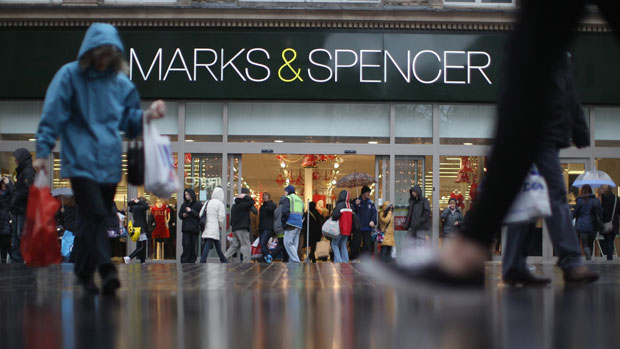
A free daily email with the biggest news stories of the day – and the best features from TheWeek.com
You are now subscribed
Your newsletter sign-up was successful
Marks & Spencer says sales crash was expected
07 July
Marks & Spencer has reported what The Guardian describes as "dire trading figures", including its "biggest fall in clothing sales in more than a decade".
Non-food sales fell 8.9 per cent for the three months to 2 July compared to the same period last year - the worst decline for the store since its 11 per cent crash during a previous turnaround in 2005.
The Week
Escape your echo chamber. Get the facts behind the news, plus analysis from multiple perspectives.

Sign up for The Week's Free Newsletters
From our morning news briefing to a weekly Good News Newsletter, get the best of The Week delivered directly to your inbox.
From our morning news briefing to a weekly Good News Newsletter, get the best of The Week delivered directly to your inbox.
Chief executive Mark Rowe, who took over in May, said the figures were partly the result of "our recovery plan", which is based around fewer promotions, cheaper prices and a revamp of clothing lines.
"We knew our actions would reduce total sales, but we are seeing some encouraging early signs," he said.
M&S's summer sale started on 5 July, two weeks later than usual and outside the reported figures, while the period covered by the update saw the company cut the number of online discount days it ran from six to one and slash prices on 1,000 non-food lines.
Rowe says these changes account for five per cent of the fall. The final figures, he added, were "not the numbers I want to see, but they are the numbers I expected to see".
A free daily email with the biggest news stories of the day – and the best features from TheWeek.com
Food, where M&S has seen sales improve in recent years, recorded a like-for-like fall of 0.9 per cent, which Rowe told the BBC meant it "strongly outperformed" a deflationary market.
In addition, the uncertainty leading up the EU referendum had hit consumer confidence, which had a knock-on effect on sales. It was too early to tell how sales have performed since the Brexit vote, he said.
"We haven't seen any further dip off since the referendum," Rowe continued. "We are holding our nerve on this strategy as it is the right one for M&S."
M&S shares were down more than one per cent to 291p at 1.40pm in London today. Shares were already at a seven-year low and are underperforming a 1.3 per cent rise on the wider FTSE 100.
M&S shares slump as turnaround plan gets short shrift
25 May
Marks & Spencer's shares are tumbling in a rising market today after a highly anticipated turnaround plan failed to impress investors and the company reported a sharp fall in profit.
Prices were down 7.8 per cent by around 11am this morning, a modest improvement from an opening slump of more than nine per cent, despite a rise of 0.7 per cent on the wider FTSE 100 index.
Annual results this morning revealed the high street stalwart posted an 18.5 per cent fall in pre-tax profit to £489m. One-off expenses of £200m, including £100m of charges related to its underperforming international operations, acted as a drag and underlying profit actually improved by more than four per cent to £689m, while revenues jumped 2.4 per cent to £10.4bn.
Beneath these headline figures there was a fall in like-for-like sales in the once-dominant clothing and homewares division of 2.9 per cent, although in food, the company continued to outperform the market with a 0.2 per cent uptick in like-for-like sales, the Financial Times reports.
New chief executive Steve Rowe, an M&S veteran of 25 years and a former head of its clothing division, said the results were "not satisfactory" and outlined details of a long-awaited turnaround plan.
In particular, says Sky News, the company will cut prices on "around 30 per cent of its clothing ranges, having already slashed price tags on 3.5 million garments in the past few weeks". It will also reduce its product range by about ten per cent to simplify its offering.
Rowe said the group needed to win back "Mrs M&S" – female shoppers aged 50 and over who have been "neglected" in recent years.
He also pledged to enhance the customer experience with "sharper ranges, better availability and investment in store staffing", in particular by boosting pay to £8.50 per hour, well above the new national living wage, and £9.65 in greater London. Offsetting this, the firm confirmed plans to shut its defined benefit scheme and move members to a money purchase alternative.
However, Rowe admitted the reforms would hit profits in the short term.
Summing up the critical analyst view, Steve Clayton, the head of equity research at Hargreaves Lansdown, said: "The themes of strong growth in food but poor performance in clothing and home have been an ever-present scratched record for some years now. So far, there is little we can see in the strategic review that hasn’t been tried before at the company."
Others were more positive, with Peel Hunt saying the strategic review was "right on the money".
Marks & Spencer shares defy negative sales update
07 April
Shares in Marks & Spencer rose three per cent by midday today, putting them out in front of a flat FTSE 100 index despite a sales update that on the face of it appeared negative.
Like-for-like takings in the critical clothing division fell 2.7 per cent during the three months to the end of March. The flagship department that once dominated the high street – and which still accounts for the majority of M&S profit – has declined for all but one quarterly period in the past five years, notes the BBC.
The usual good news elsewhere was also muted. Food sales were flat, ending, Reuters says, more than six years of consecutive growth in a department that represents former chief executive Marc Bolland's most impressive legacy. Market share in food rose slightly as a result of 80 new store openings, however.
Laith Khalaf, a senior analyst at Hargreaves Lansdown, said the results showed "clothing continues to be a rather large millstone around Marks & Spencer's neck". So why are shares rising?
Partly it is because the numbers could have been worse. Clothing sales were much improved on a decline of close to six per cent for the three months to December and were well above consensus analyst forecasts for a fall of 3.5 per cent.
Then there were the strong words from new chief executive Steve Rowe, the former head of the clothing department who formally took over from Bolland this month. He said "performance remains unsatisfactory" and pledged a more radical turnaround plan to be unveiled at full-year results next month.
"Overall, this should reinforce the view that a geared recovery in clothing and home can be delivered in the near-medium term," said Haitong analyst Tony Shiret. "This has been said often in the past 20 years at M&S and not delivered that often. But Mr Rowe’s strengths should protect the downside."
Finally, there is a familiar positive story on profit margins, which have been boosted by supply chain improvements and a steadfast refusal to join a trend of discounting in recent years. Underlying half-year profit actually rose despite sluggish sales in November – and today, M&S said its margins for the full year would be at the very higher end of its guidance of up to 2.5 per cent.
'Bolland bounce' for Marks & Spencer as chief quits
07 January
City analysts were caught off guard again this morning as Marks & Spencer announced the shock exit of chief executive Marc Bolland.
The Dutch-born boss, who, the Financial Times notes, has been at the helm for a FTSE-100 average of six years, will hand over the reins in April but remain on hand to provide transitional support until June. He will be succeeded by Steve Rowe, the head of M&S's non-food general merchandise division and 25-year company veteran who was appointed after a "rigorous" selection process.
Bolland's exit comes as the retailer announced its results for the 13 weeks to 26 December that encompass the critical Christmas trading period – and they typified what will be a mixed legacy.
Sales in the general unit that crucially includes clothing, still seen as integral to the M&S brand, fell by a worse than expected 5.8 per cent, affected by the milder winter weather. Food sales, on the other hand, surged 3.7 per cent (or 0.4 per cent on a like-for-like basis) to record the best-ever festive season figures.
Underneath the headline trends, changes made to the supply chain in combination with a refusal to discount have helped hold up underlying profit margins at a time when a deflationary retail environment is hurting competitors. M&S also now boasts a strong online platform that stands it in good stead amid a wider shift to buying on the internet, with those sales up 20 per cent over the past three months.
Overall, the FT's Lombard column says Bolland leaves M&S with the "strongest food proposition on the high street", a "decent online shopping platform" and having delivered total shareholder returns during his tenure of around 50 per cent. But the brand's investors always look at clothing sales and the ongoing slump here, which cannot be fully explained by fine weather, is his "one glaring failure".
This is why pressure has been growing on him for some time – and perhaps his departure explains "the Bolland bounce" shares enjoyed this morning, despite the poor trading figures, the Daily Telegraph says. The stock rose 1.3 per cent to 444.6p in early trading and by late morning, a 1.5 per cent dip was still way ahead of the wider market's 2.7 per cent slump.
Marks and Spencer: why investors are shrugging off falling profit
4 November
Marks and Spencer this morning reported a sharp year-on-year fall in profit for the first half of the year and a continued slide in its once-dominant clothing sales over the past quarter.
Despite these failures, investors have reacted warmly to the high street retailer's latest results and driven its shares up by more than three per cent. In part this confidence in the store's performance reflects the fact the figures could have been far worse – analysts had, for example, expected a steeper fall in clothing, according to the Financial Times – but it is also the result of a strong anti-discounting stance that has boosted profit margins.
Overall, Marks and Spencer's final pre-tax profit dropped by 23 per cent to £216m for the six months to September. But underlying profits (disregarding one-off items such as asset disposals in Eastern Europe) actually rose by more than six per cent to £284m. This growth comes on the back of a rise in profit margin for the store's clothing range of close to three percentage points, a result of chief executive Marc Bolland's refusal to join the high street price war in order to attract customers.
Elsewhere, food sales rose by 0.2 per cent in stores that have been open for at least a year – and by 3.3 per cent in total when the 32 new "Simply Food" outlets that have opened in the past six months are included, according to the Daily Telegraph. Online sales are also up and customer satisfaction with Marks and Spencer's clothing range is also thought to have improved.
Investors will be particularly pleased that the company has decided on the basis of the results so far – and on an increase in its full year profit guidance – to up its interim dividend by 6.3 per cent to 6.8p per share. Marks and Spencer's stock rose by 3.3 by per cent to 537.5p by mid-morning.
All this is not to say the company's turnaround is complete. Aside from the fact profits did ultimately fall, international sales have declined by 0.9 per cent (and by 5.1 per cent when currency movements are factored in) and, critically, there is a stubborn and persistent waning in clothing sales that remains unresolved. The general merchandise department also slipped by 1.2 per cent on a like-for-like basis.
To get its profits up and tempt more shoppers to show interest in its troubled clothing range, the FT has previously reported that Bolland was considering acquiring a number of niche fashion brands. He does not, however, have the support of the board – and some say he is unlikely to get it anytime soon.
-
 Political cartoons for February 14
Political cartoons for February 14Cartoons Saturday's political cartoons include a Valentine's grift, Hillary on the hook, and more
-
 Tourangelle-style pork with prunes recipe
Tourangelle-style pork with prunes recipeThe Week Recommends This traditional, rustic dish is a French classic
-
 The Epstein files: glimpses of a deeply disturbing world
The Epstein files: glimpses of a deeply disturbing worldIn the Spotlight Trove of released documents paint a picture of depravity and privilege in which men hold the cards, and women are powerless or peripheral
-
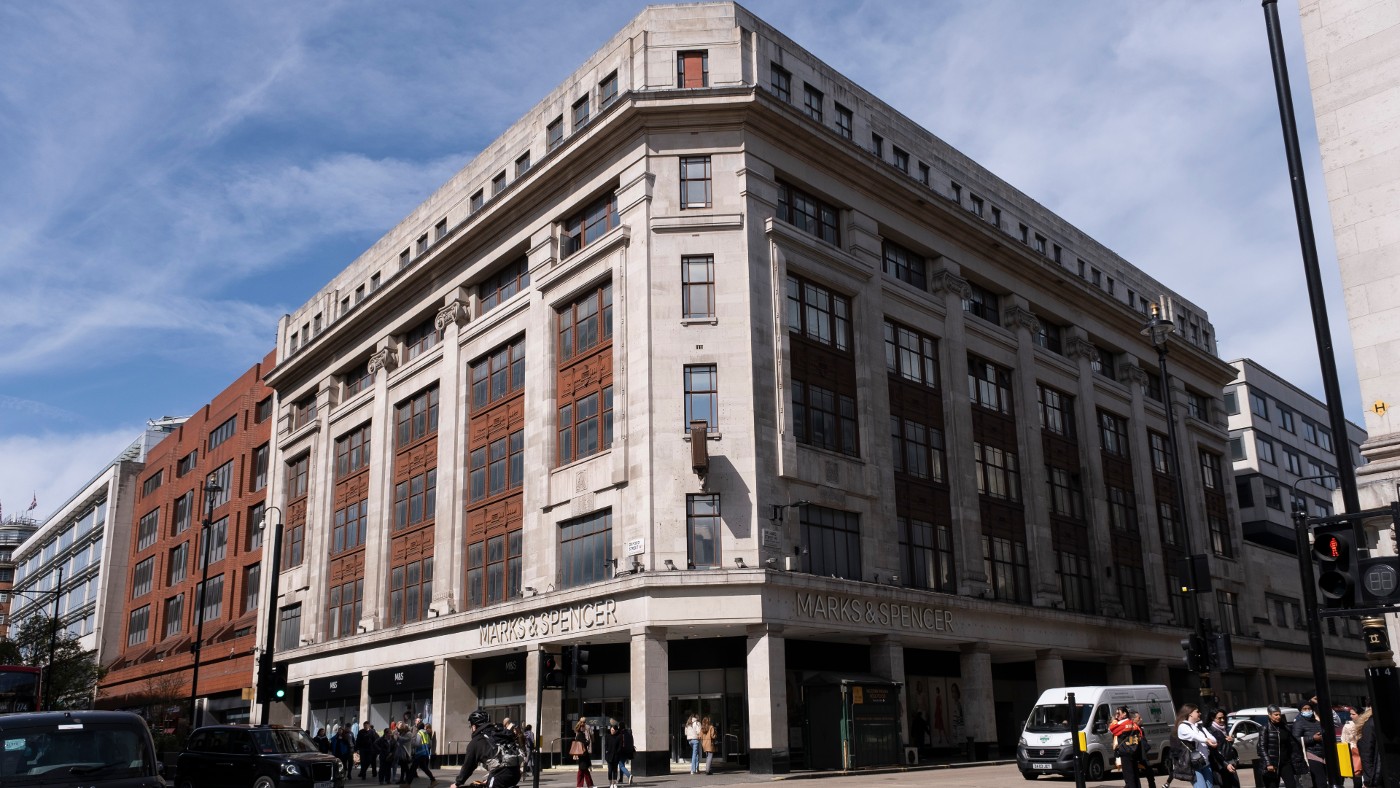 M&S to shut flagship Oxford Street store if demolition refused
M&S to shut flagship Oxford Street store if demolition refusedSpeed Read Retailer warns that key shopping street has ‘smell’ of ‘decline’
-
 Fresh blow for Marks & Spencer as finance boss quits
Fresh blow for Marks & Spencer as finance boss quitsSpeed Read Humphrey Singer had been in the job for little more than a year
-
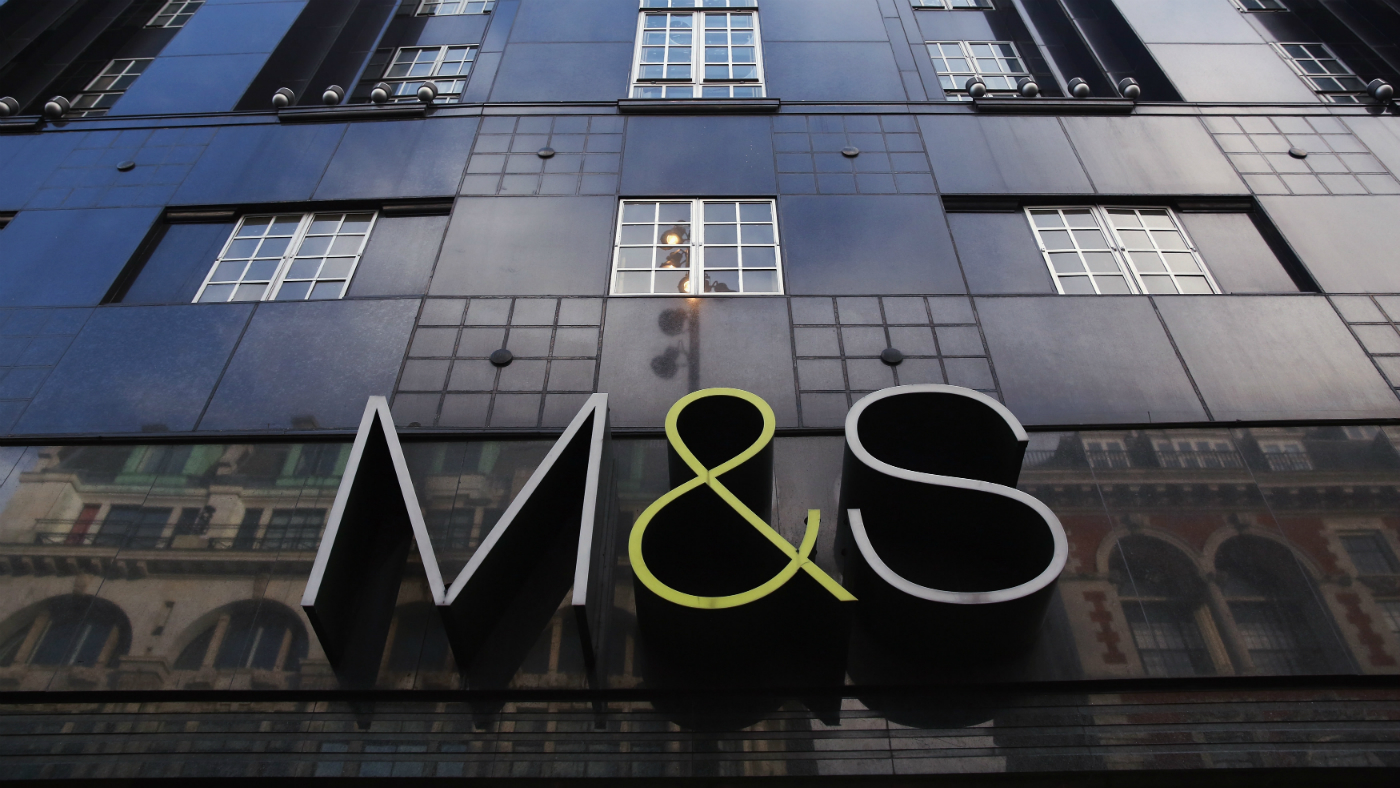 Why M&S is about to drop out of FTSE 100
Why M&S is about to drop out of FTSE 100In Depth Struggling high-street stalwart loses its place among the UK’s top 100 companies
-
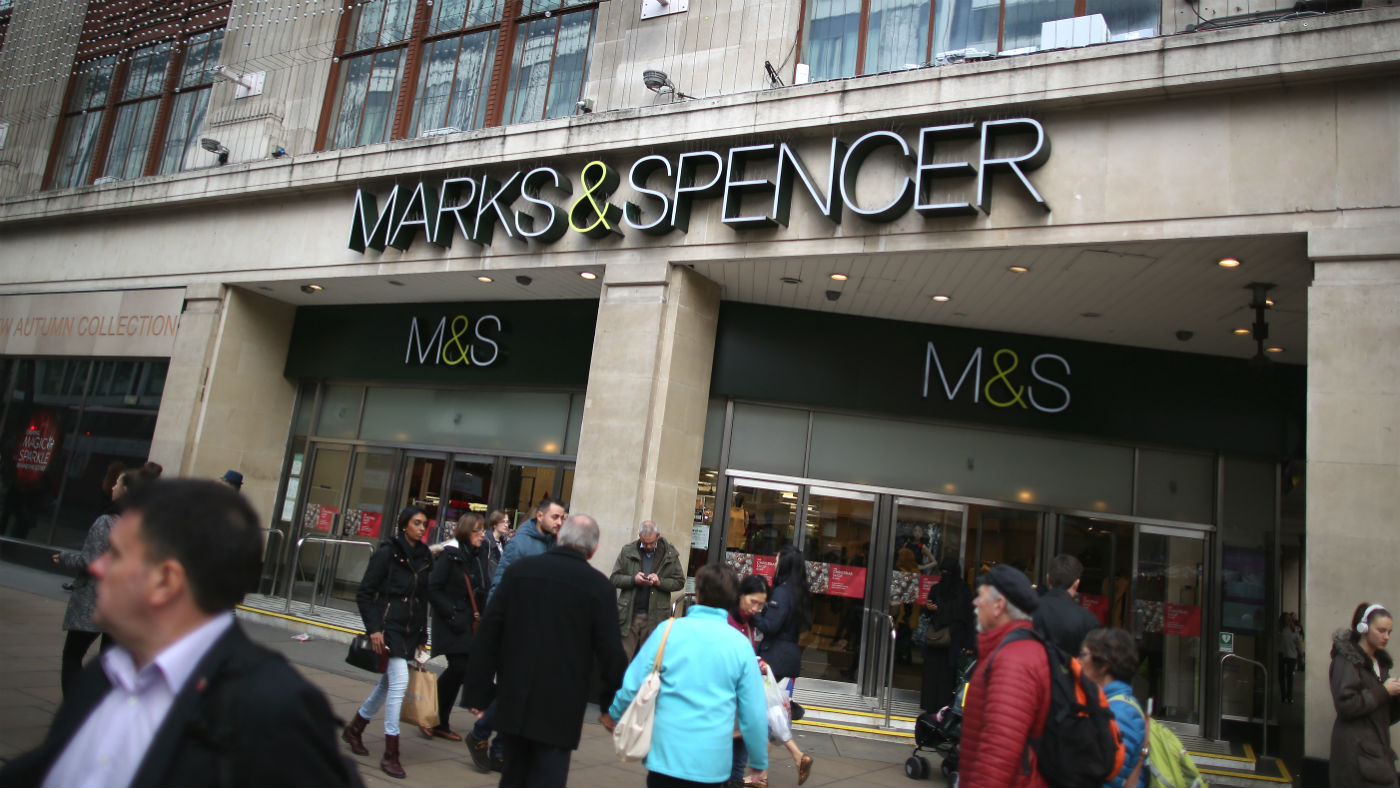 Could M&S lose its high street crown?
Could M&S lose its high street crown?Speed Read Retailer to shut 100 stores by 2022 after years of declining sales
-
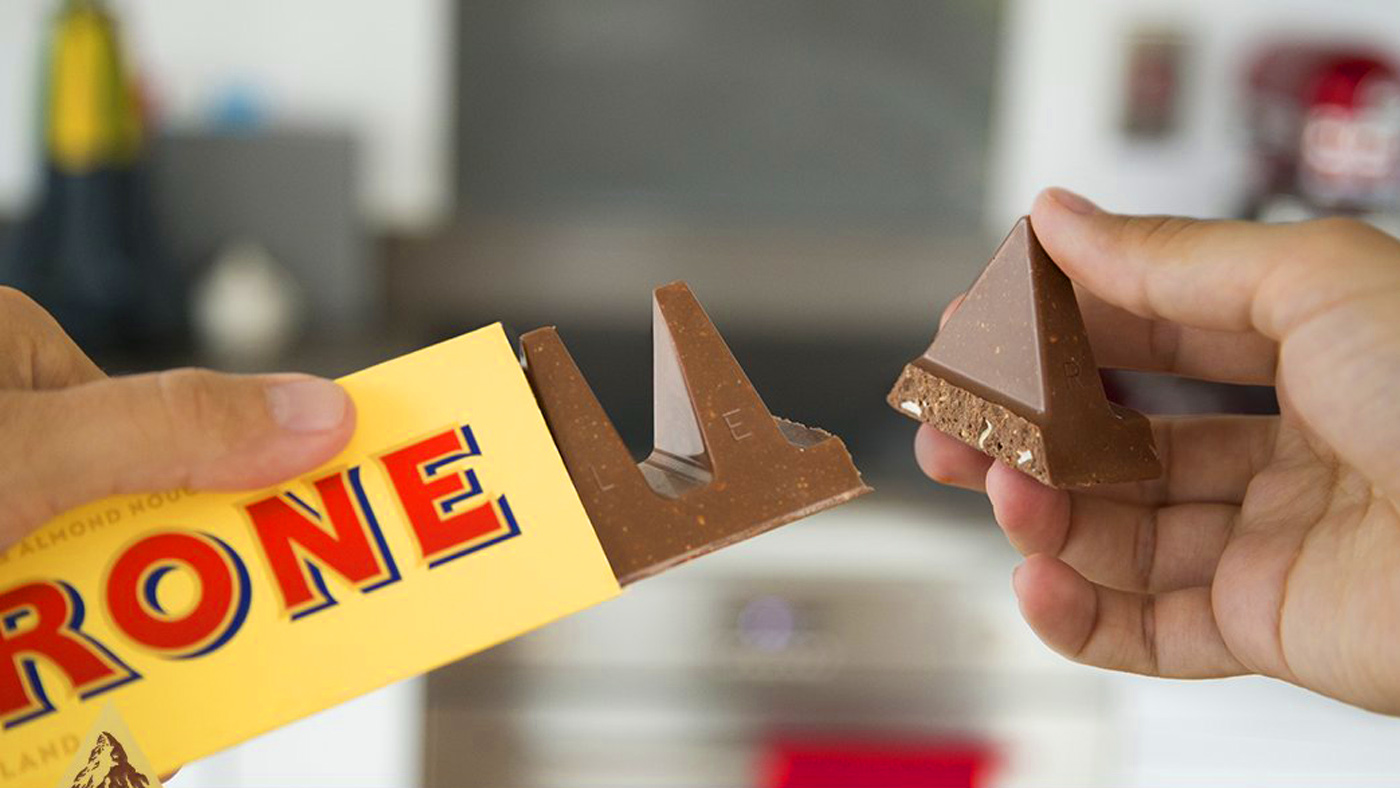 Poundland's Toblerone war: What are the best own-brand products?
Poundland's Toblerone war: What are the best own-brand products?In Depth Even better than the real thing? Here are six store products to put in your trolley
-
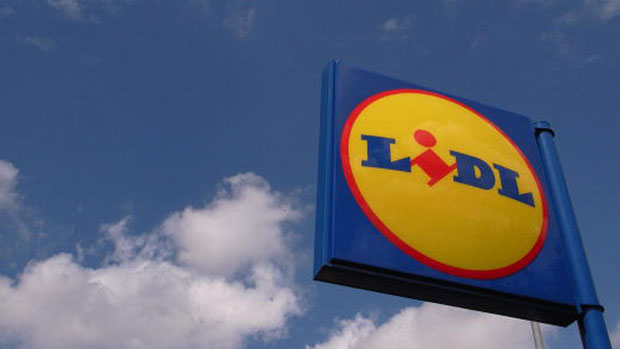 Sainsbury's sales rise but Lidl and Aldi 'win Christmas battle'
Sainsbury's sales rise but Lidl and Aldi 'win Christmas battle'In Depth Supermarkets report record sales for the Christmas period, with winners at both ends of the market
-
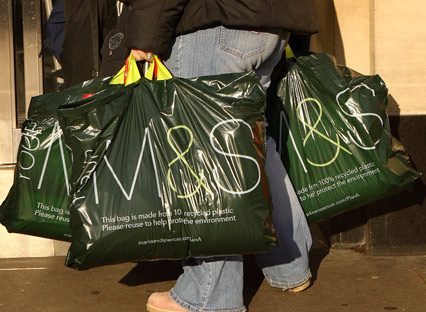 Can best M&S results for two years save boss Marc Bolland?
Can best M&S results for two years save boss Marc Bolland?In Depth 'Jekyll and Hyde' retailer buoyed by food sales but analysts warn that CEO's 'judgement day' will come